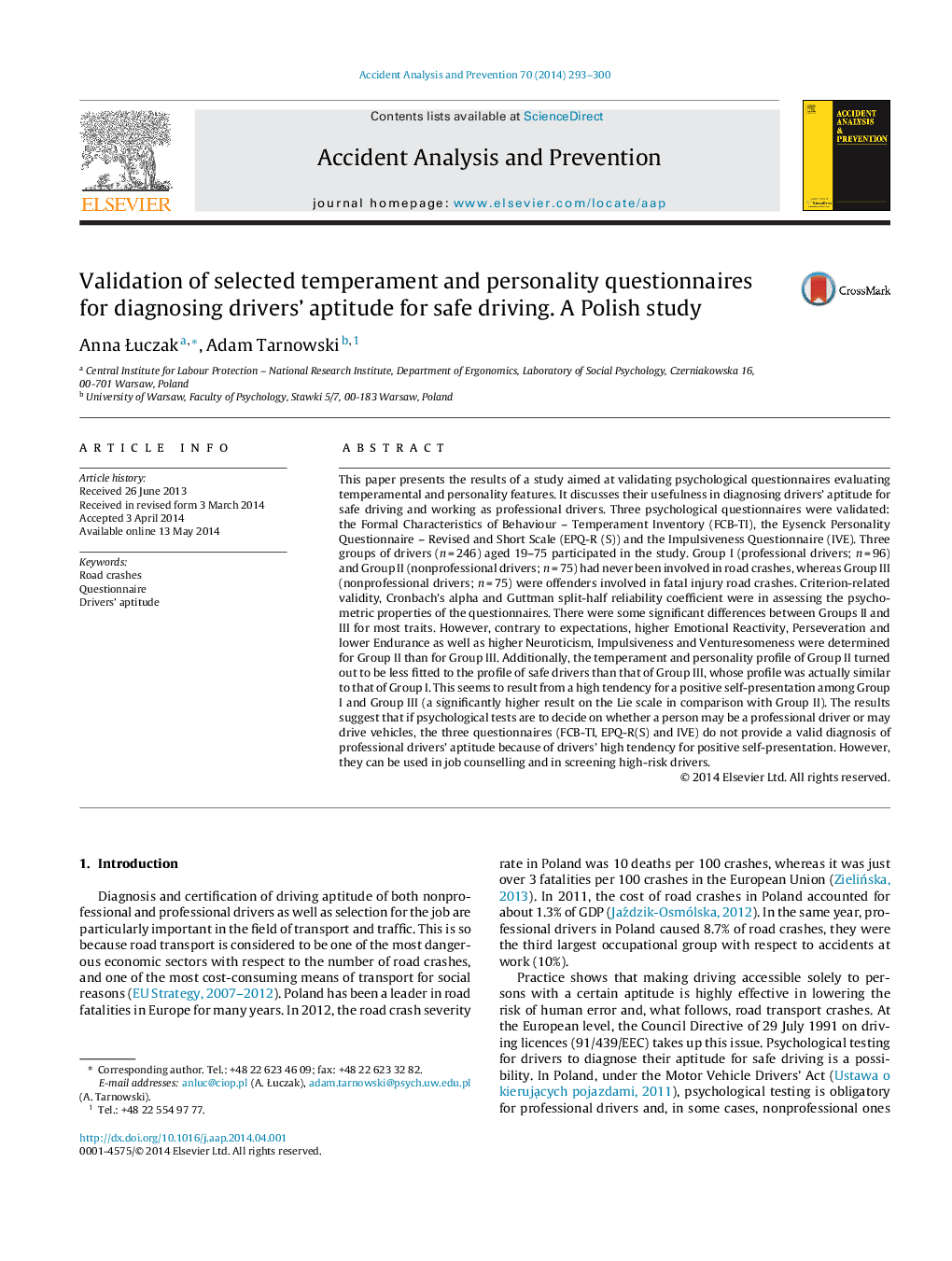| کد مقاله | کد نشریه | سال انتشار | مقاله انگلیسی | نسخه تمام متن |
|---|---|---|---|---|
| 572326 | 1452927 | 2014 | 8 صفحه PDF | دانلود رایگان |
• We discuss the usefulness of three questionnaire methods for testing drivers’ aptitude.
• We compare the personality profiles of drivers never involved in road crashes and drivers–offenders in road crashes.
• High tendency for positive self-presentation can influence questionnaire scores.
• We suggest in what areas the tested questionnaires can be used.
This paper presents the results of a study aimed at validating psychological questionnaires evaluating temperamental and personality features. It discusses their usefulness in diagnosing drivers’ aptitude for safe driving and working as professional drivers. Three psychological questionnaires were validated: the Formal Characteristics of Behaviour – Temperament Inventory (FCB-TI), the Eysenck Personality Questionnaire – Revised and Short Scale (EPQ-R (S)) and the Impulsiveness Questionnaire (IVE). Three groups of drivers (n = 246) aged 19–75 participated in the study. Group I (professional drivers; n = 96) and Group II (nonprofessional drivers; n = 75) had never been involved in road crashes, whereas Group III (nonprofessional drivers; n = 75) were offenders involved in fatal injury road crashes. Criterion-related validity, Cronbach's alpha and Guttman split-half reliability coefficient were in assessing the psychometric properties of the questionnaires. There were some significant differences between Groups II and III for most traits. However, contrary to expectations, higher Emotional Reactivity, Perseveration and lower Endurance as well as higher Neuroticism, Impulsiveness and Venturesomeness were determined for Group II than for Group III. Additionally, the temperament and personality profile of Group II turned out to be less fitted to the profile of safe drivers than that of Group III, whose profile was actually similar to that of Group I. This seems to result from a high tendency for a positive self-presentation among Group I and Group III (a significantly higher result on the Lie scale in comparison with Group II). The results suggest that if psychological tests are to decide on whether a person may be a professional driver or may drive vehicles, the three questionnaires (FCB-TI, EPQ-R(S) and IVE) do not provide a valid diagnosis of professional drivers’ aptitude because of drivers’ high tendency for positive self-presentation. However, they can be used in job counselling and in screening high-risk drivers.
Journal: Accident Analysis & Prevention - Volume 70, September 2014, Pages 293–300
